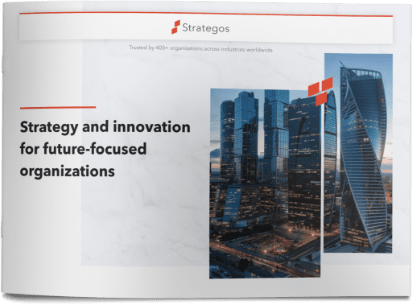Talent in all industries and all levels want to see their ideas realized. Innovation is as much about implementation as ideation. To attract, retain and develop talent, your organization needs to encourage ideation but also to commit resources to realize those ideas. Your organization, your talent, doesn’t just want to exercise creativity; they want to make an impact. That’s what turns the enthusiasm into accomplishment – for the individual and the organization.
No matter what the industry, we all talk about building an innovation culture to attract and retain talent. But what is an innovative culture? The images that come to mind are a lot of whiteboards for brainstorming sessions, walls with post-it notes or desks filled with toys for inspiration. But is “idea generation” synonymous with “innovation culture”?
Let’s take this thought to the extreme. Would your company attract and retain 10x more top talent if their only job responsibility was brainstorming? Customers and colleagues would come to them with problems and your A players would design possible solutions. But remember, they would only be allowed to brainstorm – no experiments, no prototypes, no trials.
You might attract A players with the promise of unbridled creativity but you wouldn’t be able to retain them. Why? Because we are all in the business of doing things or making things. When prioritizing innovation projects, I don’t ask team members to rank by estimated financial impact or the how different their solution is from competitors. I ask them, “Which of these opportunities would you like to work on for the next 12 months?” They assess the chances of success but success is more broadly defined than return. Success is about three things: (1) initial creativity as we have discussed, (2) learning, and (3) ownership. And it’s emotional.
Just to drive this home, we all know that the most de-motivating thing to do within an organization is to solicit ideas and then do nothing with them. Your talent will become jaded, some will sulk, and their trust in the organization will never be the same.
Don’t get me wrong, your organization isn’t naïve. They don’t expect all their ideas to be implemented. Choosing all is as bad as choosing none. The people in your organization understand that resources are limited and choices need to be made. They want transparency from their leadership about prioritization and decision making. They need to understand the strengths and weakness of their idea:
- Is their definition of the customer and the customer’s need compelling or unclear?
- Is their proposed solution thought through or incomplete?
- Is their concept of how the organization with extract value plausible or flawed?
- Is someone else in the industry already firmly planted in this space?
- Are we missing key partnerships or capabilities to make this happen?
Each of these critical elements of the business model must be elaborated and tested before full scale implementation. Sketching out these elements involves more than brainstorming but to maintain momentum it can’t be a multi month process. It should be a few weeks at most because it is just a sketch.
Once we have a compelling sketch of the potential business, we need to test our key assumptions in the real world. Experimentation and refinement of the initial idea are the iterations that will provide your talent with the learning that they are seeking. And let’s be clear that learning isn’t derived from running 100 potential scenarios. Learning is about interacting with potential customers and partners.
Your talent will grow and the idea, their proto business model, will evolve. This interaction among your talent, their idea, and the stakeholders will also build that elusive connection of ownership. From the stakeholder’s perspective they see this as responsiveness. Remember this is all occurring as fast, low-cost experiments to learn and adapt before implementation.
The knowledge and flexibility that your talent acquires during experimentation will prepare them for the challenges that will inevitably come during implementation. An innovation culture also needs to be an implementation culture.




